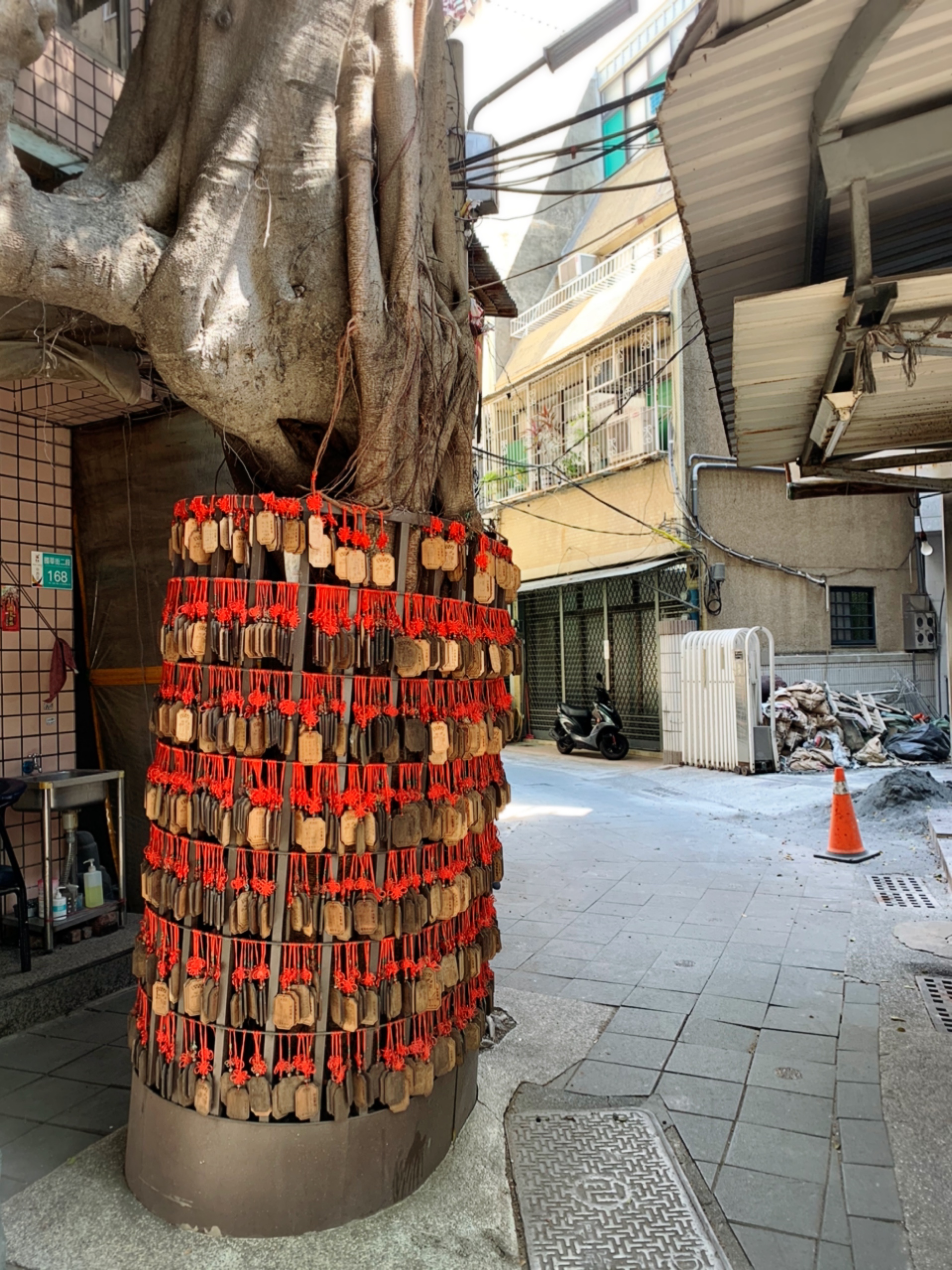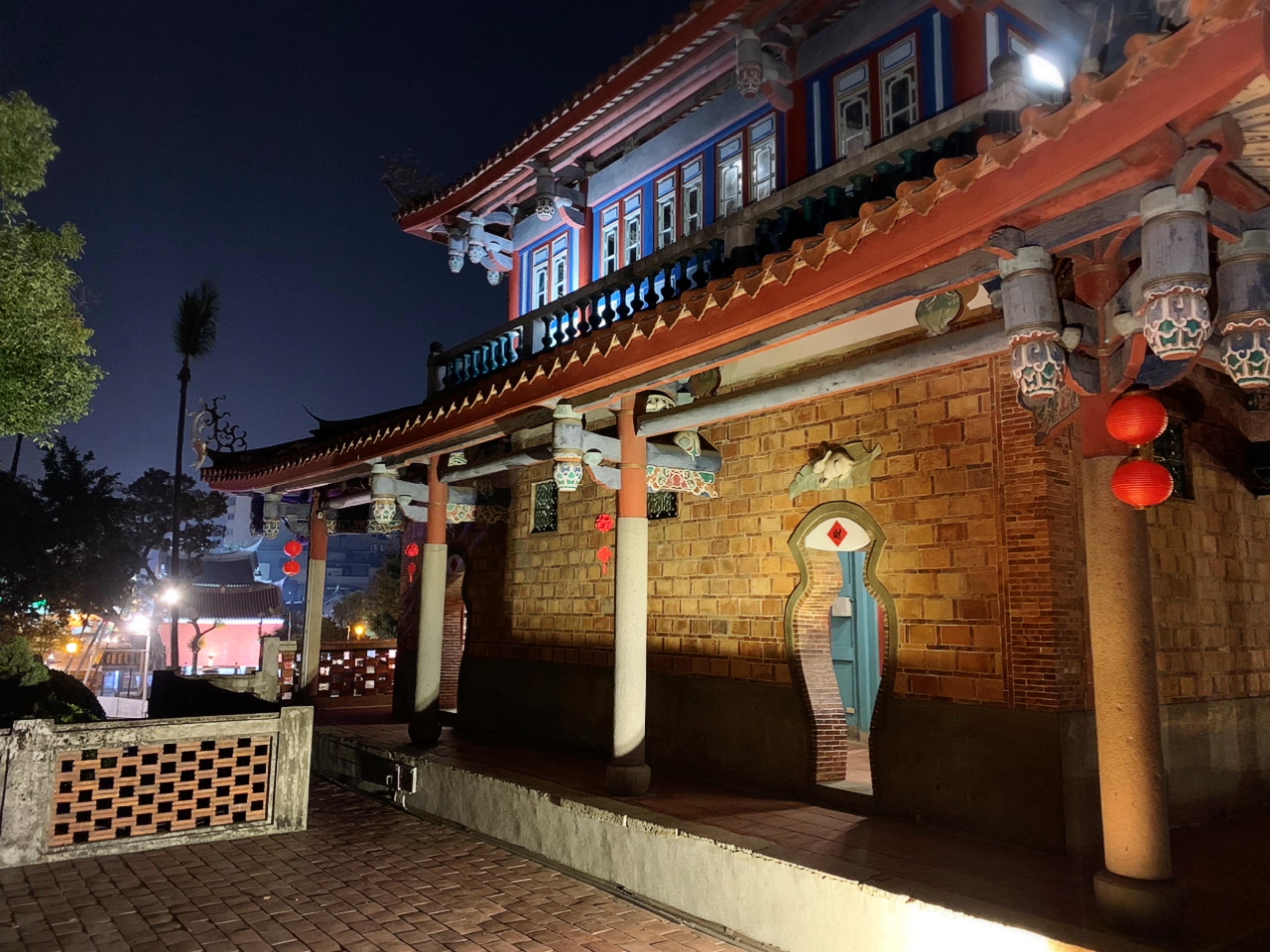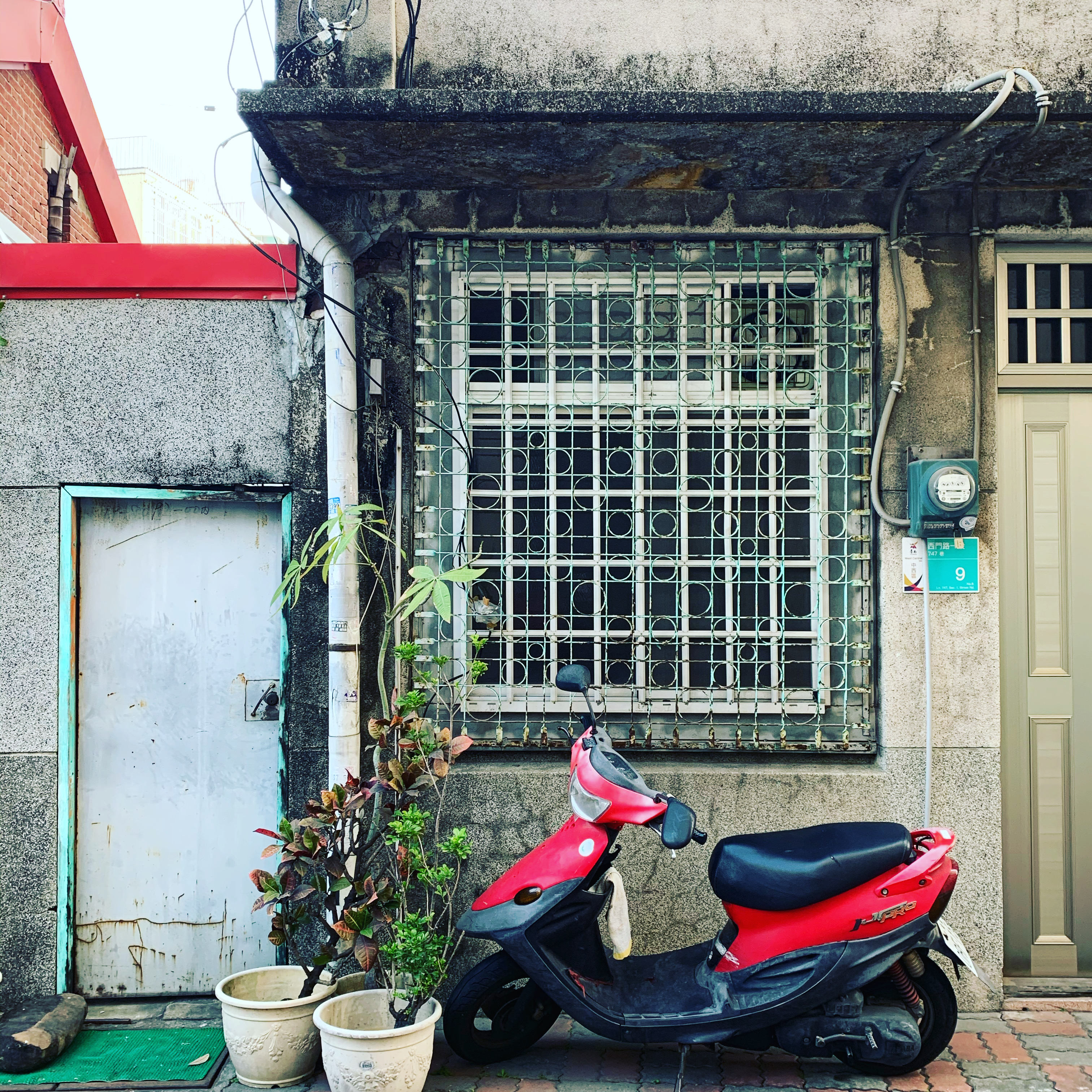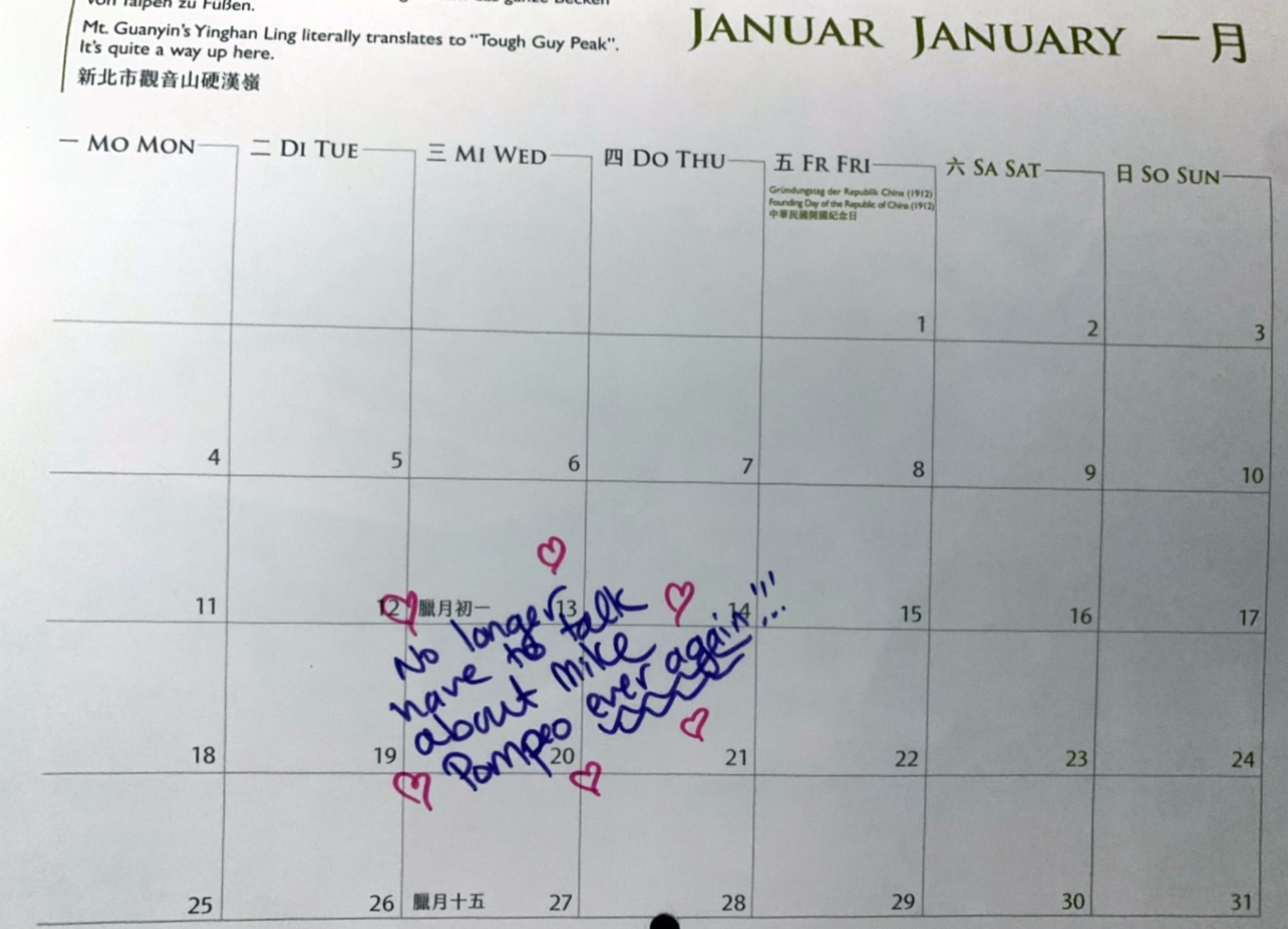
Pineapples aren't actually at their best this time of year, but it's been a good week for wearing this necklace I picked up awhile ago.
First, a quick explanation for why my blogging has trickled off in the past few weeks: I've taken on a project as one very busy cog in a massive research project. If (hopefully when) the results are published, I'll talk about them more. For now, I'll just say that there's a relationship to some of the topics that come up in this episode of Taiwan Context, where I talk at with Donovan Smith about issues in English language education. Perhaps my Facebook friends have seen that I've been hopping around the country -- multiple trips to Tainan and Hsinchu, I'm writing this from Kaohsiung, and I'll be skipping through Taoyuan next week. It's all related, and I'll be excited to share more when I can.
However, this means I spend a lot of time in front of a computer, even when traveling. It's tiring to the eyes and can cause throbbing headaches if I overdo it. After all those hours of writing up long research notes and checking transcripts, I just don't have the eyeball stamina to blog. I'm sorry, and I do expect the pace will pick up soon.
That aside, let's talk about the good and the bad in the international media regarding Taiwan, starting with the bad so we can savor the good as a sweet, tart dessert.
After dinner with a friend, I flopped down on the couch in my Kaohsiung hotel to drink tea and channel surf as I don't have a television at home. Not finding anything satisfyingly dumb like one of those wedding dress shows, I settled on DW after flipping past several monks, costume dramas and shopping networks. I let it play in the background as I loafed around, and then promptly sat up and turned it off when I heard this:
China was the ONLY major economy to see growth last year.
DW made a similarly clumsy mistake in October, with this:
China is the only industrialized economy that has seen growth in 2020.
That second segment isn't entirely bad, as one commenter calls Taiwan a "country" later on. The point stands, however, that the statements above are simply wrong.
Assuming one can believe any statistics from China -- and that's a gamble I don't make as a rule -- Taiwan's economy still grew more than China's in 2020 and the country is experiencing a tsunami of demand for semiconductors that frankly, only Taiwan has the technology to make well and fast enough.
Taiwan is an industrialized country, moreso than China. China's economy highly uneven across every metric I can think of, and while I'm no economist, being a massive economy (#2 in nominal GDP) with mediocre per capita rankings (#71, #79 and #66 in nominal GDP per capita, PPP per capita and GNI per capita respectively) doesn't look great. Taiwan can't beat China on GDP, but on every per capita ranking it comes out better: nominal GDP per capita at #36, GNI per capita at #33, PPP per capita at #20.
It's just not accurate to say that China was the "only" industrialized country to see growth in 2020. Taiwan's economy not only grew, it beat China for the first time in decades.
As for being the only "major" economy to grow, it's true that China's economy is bigger than Taiwan's, and China is in the G20 while Taiwan is not (SCMP at least got this right). But being in the G20 is not the final call on what counts as a "major" economy. Can we really say that Country #20 (that would be Turkey or Switzerland, depending on whom you ask) is "big", but Countries #21, #22 and #23 (which is just about where Taiwan falls) is definitively not?
If you're going to use a general term like "major" -- as opposed to a specific one like "G20 member" -- then it's erasure of Taiwan to ignore the fact that the 22nd largest economy in the world experienced more growth than the one that keeps making the news for growing. (Notably, several developing countries also experienced economic growth, including Guyana, Ethiopia, Egypt, South Sudan, Rwanda and Turkmenistan. The presence of countries on that list which are also facing devastating famine or generally not considered well-governed should demonstrate that growth isn't the only marker that matters).
China helped COVID19 spread due to its initial cover-ups, yet its economy grew. Taiwan did an excellent job of handling COVID19, and its economy grew more than China's. But China gets the DW shout-out and Taiwan doesn't? This shows we have a long way to go to press for better international media coverage of Taiwan.
By the way, If you're wondering why I'm crapping on DW and not any of these other news outlets that published the same garbage, it's because I saw it on DW first. But they are just as culpable for bad reporting that erases Taiwan on the global stage.
In fact, it feels even more sinister than that: if you want to write a story that showcases China's 2020 economic growth and makes it sound like it's the only country to accomplish this, you need to add a modifier in order to do so with even a shred of plausible deniability. So you choose an imperfect one -- "industrialized" or "major" -- allowing you to safely ignore Taiwan and a group of mostly-African developing countries. But you got your nice headline that showcases China, a narrative which I suppose gets more eyeballs and clicks than a dive into why some countries' economies grew in 2020 but others didn't.
In any case, your priority isn't thoughtful reporting, it's creating a narrative that will get views. It's pushing a "China" story for the sake of pushing a China story more than it's an objective look at what's going on with global economic growth.
That feels manipulative: it leaves readers and viewers with a sense that China is somehow special and unique, when it's not. It denies viewers the chance to learn about and from the African experience with COVID19 and allows you to go right back to ignoring Taiwan, which the international media would usually prefer to do, given the choice.
And now for the dessert
It's not all doom and gloom, however. Bloomberg, SCMP and Nikkei were smart to point out that Taiwan actually outpaced China in 2020, although that's a small number of international media that got it right while outlets like CNN, the Wall Street Journal and BBC mucked it up.
What did garner more attention? Freedom Pineapples! And to a similar extent, the fact that the whole world seems to be finally realizing that they need Taiwan's semiconductors, so Taiwan has mattered all along.
As uncreative people around the world throw up their arms and say "well we have to give in to China's demands because we absolutely must trade with them", Taiwan got hit with an import ban on pineapples for some pretty dodgy reasons, and fought back through a government-encouraged campaign for Taiwanese to buy their own pineapples, to the point that domestic pineapple sales have closed the gap in just a few days.
Riding on Australia's Freedom Wine campaign, Taiwan is helping to show the world that it doesn't need to just lie down and take China's weaponizing of trade. Of course, in 2018 Palau was already pointing us in the right direction.
Just a few years ago, Taiwan would have freaked out at China suddenly shutting down imports of any given product. The DPP would have yelled about it, and the KMT would have used it to stump their "reasonable" platform that we have to be "friendly" with China so they won't pull these sorts of moves, which is about as likely to be successful as shining the school bully's shoes so he won't shove you in a locker. Now, the DPP says "okay, we'll buy our own damn pineapples", and the KMT has no choice but to get on board.
At this point, China might want to meditate over how and why pineapples are what definitively proved that Taiwan is neither going to allow itself to be bullied nor annexed.
I don't know that the "let's buy it ourselves" model would work on a large scale, but at least it shows the world what it really means to be on the front line of democracy standing up against authoritarianism -- that and all the jet scrambling. It shows that there are avenues for fighting what looks like an impossible foe, and it's possible to simply refuse to be bullied. It shows that China's strategies can be made to backfire spectacularly, simply by refusing to play their game. And when it comes to those aforementioned semiconductors, it shows that a bullied country like Taiwan, erased internationally and treated like crap by international organizations, can still build a stupendously successful industry.
But even better for Taiwan, if the country can't get the international media attention it deserves on things like, oh, handling both COVID19 and the economy better than China, then at least it can show the world how to effectively stand up against a bully, while reminding itself that it doesn't need to shine China's shoes.
It's not enough to counter the damage done by all of the bad journalism cited above, but it's something, and if Taiwan keeps finding creative ways to bolster its own identity while telling China to buzz off, perhaps more people will start to take notice.














